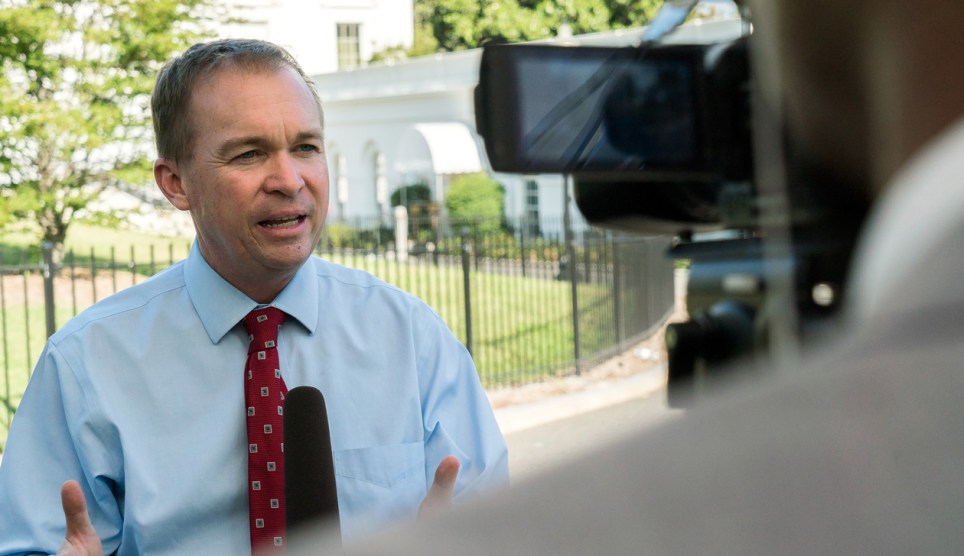
Evan Walker/Planet Pix via ZUMA
So Mick Mulvaney showed up at CFPB headquarters today to take over as director. Presumably, so did Leandra English:
This morning in @CFPB
—7:56 am Mulvaney spokesman tweets photo of him “hard at work”
—7:57am, Leandra English sends staff a welcome back email signed “acting director”
—Around 10am, Mulvaney sends staff a memo saying disregard instructions from English.
—Lawsuit in progress.
— Tom Namako (@TomNamako) November 27, 2017
Their duel was set for high noon—Excel spreadsheets at twenty paces—but there’s no word yet on how that turned out.
As a reminder, here’s the basic dispute:
- The 1998 Vacancies Reform Act gives the president the power to fill vacant positions in the executive branch. It is the “exclusive” means for filling positions “unless” another statute expressly names a successor.
- The 2010 Dodd-Frank Act expressly says that the deputy director of the CFPB “shall” become director in case of a vacancy.
The White House position is that Dodd-Frank doesn’t remove the president’s VRA power. It merely means that VRA is no longer the “exclusive” means of filling the vacancy. The president still has the option of using it.
The lawyers will sort this out, but here’s the part that was tickling my brain last night. It’s one thing to disagree about what statutory language means, but surely it has to mean something. Right? But if the White House interpretation is correct, then the language in Dodd-Frank is literally meaningless. VRA still controls, and the president had the power to name the deputy as the new director all along if he wanted to. So why bother even including it?
This is the question I haven’t seen addressed. If VRA is the controlling statute regardless, then why did Congress even bother including language about a CFPB successor in Dodd-Frank? It might make sense if this applied only to temporary absences (due to illness, for example), but that’s not the case. Everyone agrees that the Dodd-Frank language applies equally to both temporary absences and resignations.
My untutored view is that the Dodd-Frank language means exactly what it says: if the director resigns, then the deputy director takes over, full stop. And it was included as a means of maintaining CFPB independence from the White House, something that Congress clearly intended. This is the only interpretation that seems to make consistent sense.
But I suppose a judge will decide I’m wrong soon enough.















